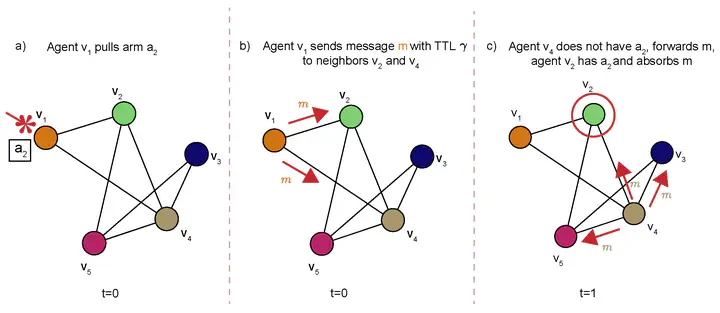Flooding with Absorption: An Efficient Protocol for Heterogeneous Bandits over Complex Networks

Abstract
Multi-armed bandits are extensively used to model sequential decision-making, making them ubiquitous in many real-life applications such as online recommender systems and wireless networking. We consider a multi-agent setting where each agent solves their own bandit instance endowed with a different set of arms. Their goal is to minimize their group regret while collaborating via some communication protocol over a given network. Previous literature on this problem only considered arm heterogeneity and networked agents separately. In this work, we introduce a setting that encompasses both features. For this novel setting, we first provide a rigorous regret analysis for a standard flooding protocol combined with the classic UCB policy. Then, to mitigate the issue of high communication costs incurred by flooding in complex networks, we propose a new protocol called Flooding with Absorption (FwA). We provide a theoretical analysis of the resulting regret bound and discuss the advantages of using FwA over flooding. Lastly, we experimentally verify on various scenarios, including dynamic networks, that FwA leads to significantly lower communication costs despite minimal regret performance loss compared to other network protocols.